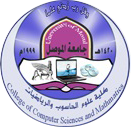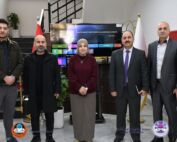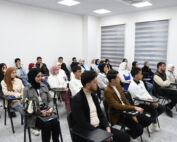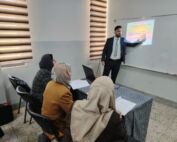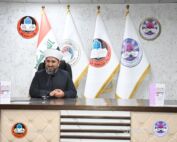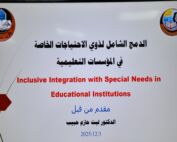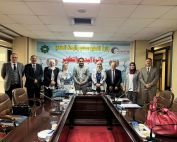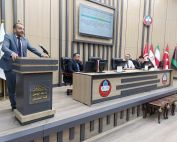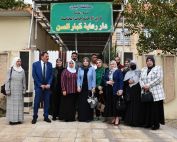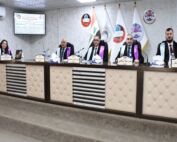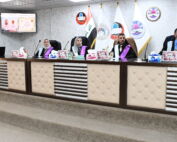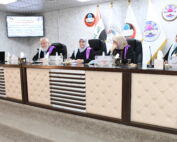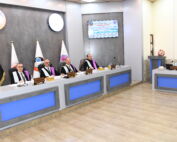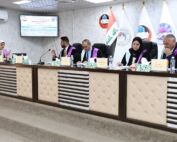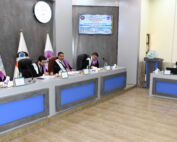26 April، 2024
(The Academic Capital Dynamics of the Scientific Research in Iraq: A Cloud Big Data Parallel Computing Approach) by student Nagham Ajeel Sultan
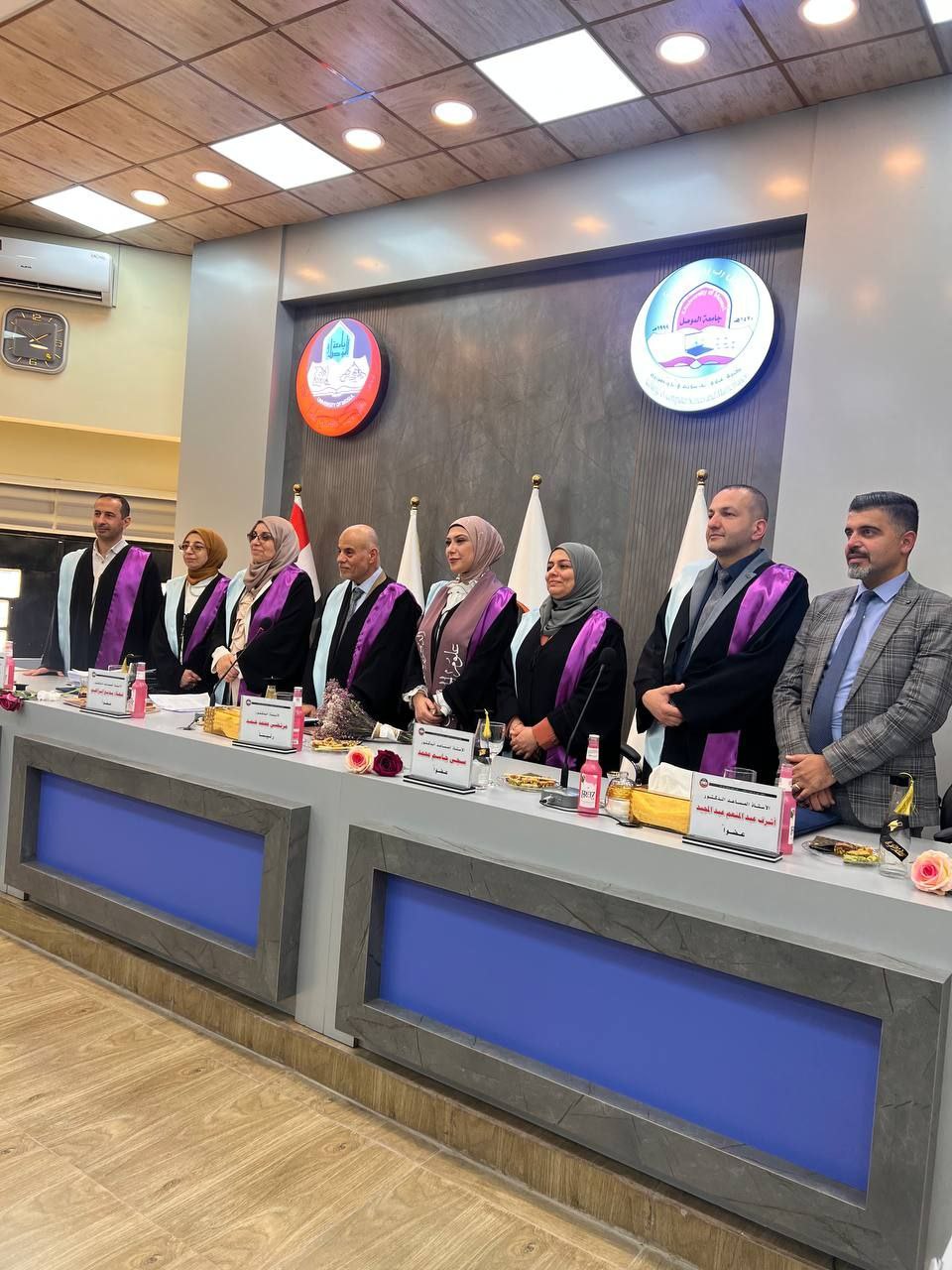
Discussion of a doctoral thesis in the College of Computer Science and Mathematics entitled (The Academic Capital Dynamics of the Scientific Research in Iraq: A Cloud Big Data Parallel Computing Approach) by student Nagham Ajeel Sultan Abdullah and under the supervision of Professor Dr. Doha Bashir Abdullah
In the discussion hall of the College of Computer Science and Mathematics at the University of Mosul on April 25, 2024
This thesis introduces a system by proposing a novel rank called Academic Capital (AC) to evaluate Iraqi universities and authors. It collects extensive data from Google Scholar using several cloud computing technologies. The collected data, then, is visualized and analyzed to assess the academic performance of the Iraqi authors and universities. Web scrapers are designed to gather data from Google Scholar of Iraqi universities and authors based on their official domains. These scrapers are based on concepts inspired by parallel processing techniques using dedicated virtual machines. The collected data is seamlessly stored using a Replica Cluster in MongoDB Atlas with three nodes to facilitate efficient data management and provide a robust and scalable infrastructure for storing and managing the collected data. This method offers high availability, fault tolerance, read scalability, load balancing, and data integrity. Moreover, a cloud-based parallel computing environment is adopted to facilitate the efficient organization and processing of the collected data, leveraging big data frameworks, with a particular focus on Apache Spark. Also, the AWS environment is created with a four-node cluster of type EC2 with Spark; one cluster is set as master, and the other three as workers.
Two datasets are created: one for authors and one for universities. By using these datasets, two network models are generated; the first is for Iraqi universities; termed as Iraqi Universities Network (IUN), and the latter is for Iraqi authors; termed as Iraqi Scholars Network (ISN). Acadmic capital of authors and universities is calculated using data from the two network models IUN and ISN, and Google Scholar indicators. The performance of authors and universities was evaluated based on the academic capital. Also, ranks for the Iraqi universities were assigned based on their levels of academic capital, which is novel.
The findings show the efficiency of the proposed approach in terms of data quality and reliability in collecting big data from Google Scholar Cloud. The results also offer interesting facts about the Iraqi universities and authors. In addition, collaboration patterns among authors and universities were also extracted using the two network models. The proposed rank was also benchmarked with other international ranks. The main results show that the average degree of the ISN is 1.8, which means that each Iraqi scholar has approximately coauthored two papers on average. This results is considered acceptable compared to ACM international network. On the other hand, the average average shortest path length of IUN is 3.2 meaning that the scientific collaboration among the Iraqi universities is high. However, the clustering coefficient of IUN is 0.249, which reflects that the Iraqi universities are not strongly connected and the tendancy to cluster together is low (far from 1). Furthermore, The results of Academic Capital of authors show that a Computer Science author has the highest Academic Capital among all the authors in the Iraqi universities. The Academic Capital of the Iraqi universities show that the University of Baghdad has the highest value followed by Al-Mustansiriyah University, University of Basrah, University of Mosul, University of Babylon, and so on. This result is relatively in agreement of the other international ranks such as QS, Times, Webometrics.
Finally, this work was considered the first kind of analysis that considers all the Iraqi universities and authors as the main focus, which is of interest to the Ministry of Higher Education and Scientific Research officials in Iraq.
